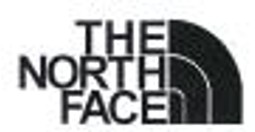Korean The North Face” Recognized as Infringing by Both Administrative Authorities and Courts, Third-Party Authentication Reports Rejected
25 Jul 2025 | Newsletter
- Case Overview
The plaintiff, The North Face, is a well-known brand with strong recognition in the industry and the registered owner of the disputed trademark. The defendant, without authorization, operated an online store on Douyin and sold clothing products bearing the plaintiff’s registered trademarks. To justify the legitimacy of the goods, the defendant provided third-party authentication reports claiming the items were “authentic Korean The North Face.”
The defendant, without authorization, operated an online store on Douyin and sold clothing products bearing the plaintiff’s registered trademarks. To justify the legitimacy of the goods, the defendant provided third-party authentication reports claiming the items were “authentic Korean The North Face.”
On March 12, 2023, following consumer complaints, the Taicang MSA raided the defendant’s business premises and seized over 3,500 units of so-called “Korean The North Face” products, valued at over RMB 1.04 million. During the investigation, the defendant submitted shopping receipts in Korean and purchase records from the Korean official website, claiming parallel importation and legitimate sourcing. Additionally, the defendant presented authentication reports from multiple institutions in an attempt to establish that the goods were genuine.
However, the Taicang MSA rejected these claims, stating that:
- The purchase records did not match the quantity of seized goods, nor was there supporting documentation to verify the traceability of the goods.
- The third-party authentication reports lacked legal validity and were therefore not accepted.
On July 25, 2023, the Taicang MSA imposed an administrative fine of RMB 600,000 on the defendant. However, as the already sold products could not be proved to bew infringing products, the MSA did not assess the number and value of infringing products previously sold through the defendant’s Douyin store, and these were not included in the penalty.
Following this administrative action, the plaintiff filed a civil lawsuit before the People’s Court, requesting an independent judicial determination regarding the infringing products already sold through the defendant’s online store and demanding RMB 600,000 in damages.
- Key Legal Highlights
- “Korean The North Face” Recognized as Infringing by Both Administrative Authorities and Courts
The defendant asserted that its products were genuine “Korean The North Face” and provided shopping receipts in Korean and purchase records from the Korean official website as evidence to support its claim of parallel importation and legitimate sourcing.
However, both the administrative authority and the court rejected this defense, ruling that:
- The defendant failed to provide proper invoices or evidence proving the legitimate importation and customs clearance of the disputed goods.
- The trademark rights in China and South Korea belong to different entities, and there was no authorization or affiliation between them.
- Since trademark protection is territorial, even if the products were purchased from the Korean trademark owner, the goods do not have legitimate trademark rights in China.
The court ultimately held that the defendant’s unauthorized use of an identical mark on identical goods infringed upon the plaintiff’s exclusive trademark rights.
Furthermore, the court classified the case as “cases that do not constitute genuine parallel importation”, meaning that:
- Although the disputed goods were imported from abroad, the Chinese and foreign trademark owners were separate entities with no affiliation.
- As a result, the goods could not be considered parallel imports under traditional legal standards.
For cases that do not constitute genuine parallel importation, judicial practice has consistently established that importing of related goods without the domestic trademark owner’s authorization constitutes infringement. For instance, in (2023) Zhe 01 Min Chu No. 627 (The North Face v. Hangzhou E-commerce Co., Ltd.) and (2024) Zhe 0108 Min Chu No. 698 (The North Face v. Hangzhou Yuhang Apparel Business), courts ruled that the trademark rights holders in dispute were different from each other, meaning the accused infringing goods could not be classified as parallel imports, and the defendants’ exhaustion of trademark rights defense was rejected.
- Courts May Independently Recognize Infringement Facts Omitted from Administrative Penalties
The burden of proof differs between intellectual property administrative cases and civil cases. The same facts and evidence may not meet the threshold for an administrative penalty but may still be sufficient for a civil judgment under the preponderance of evidence principle.
In this case, the Taicang MSA only penalized the defendant for the seized inventory, stating that the already sold products could not be verified and were therefore not included in the administrative penalty.
However, during civil proceedings, the court focused on the sales that had already taken place. At the plaintiff’s request, the court obtained transaction data from Douyin, confirming that:
- Over 1,200 infringing items had been sold (after excluding canceled and refunded orders).
- Total sales revenue from these transactions amounted to RMB 1.25 million.
Based on these findings, the court ordered the defendant to pay RMB 270,000 in damages.
- Third-Party Authentication Reports Lacked Judicial Validity
The defendant presented authentication reports from multiple institutions, including:
- China Certification & Inspection Group (CCIC) Shanghai
- Dewu (Poizon)
- Shihuo App
Each report concluded that the disputed products were “authentic.” However, both the administrative authority and the court dismissed these reports:
- The Taicang MSA explicitly ruled that the reports had no legal validity and refused to accept them.
- The court disregarded the authentication reports, determining that they had no evidentiary weight in assessing trademark infringement.
Why Were the Authentication Reports Rejected?
- The Court Had Already Found Sufficient Evidence of Infringement
- The suspicious source of the products and the large price discrepancy between purchase and sale prices had already raised concerns about the legitimacy of the goods.
- The Authentication Institutions Lacked Legal or Judicial Authority
- These organizations were not officially accredited judicial authentication institutions.
- Their authentication logic and methodology were flawed, as they merely compared the products to publicly available brand information, rather than verifying the product’s actual origin.
- Authenticity Verification Differs from Trademark Infringement Analysis
- The authentication reports assessed whether the product met standard manufacturing criteria but did not determine whether the goods originated from the legitimate trademark owner.
- Some counterfeit products may be identical in quality to genuine ones, particularly if they are produced by former authorized manufacturers who continue production after authorization expires.
Conclusion
As a case involving both administrative and civil proceedings, this case highlights the complementary roles of administrative agencies and courts in trademark enforcement.
- Both the Taicang MSA and the court recognized “Korean The North Face” as infringing.
- The administrative authority confirmed that third-party authentication reports lacked legal effect.
- The court filled in gaps left by the administrative ruling, independently assessing the already sold infringing goods.
This case reaffirms the principle that parallel import defenses must satisfy strict criteria, ensuring robust protection for trademark owners in China.

